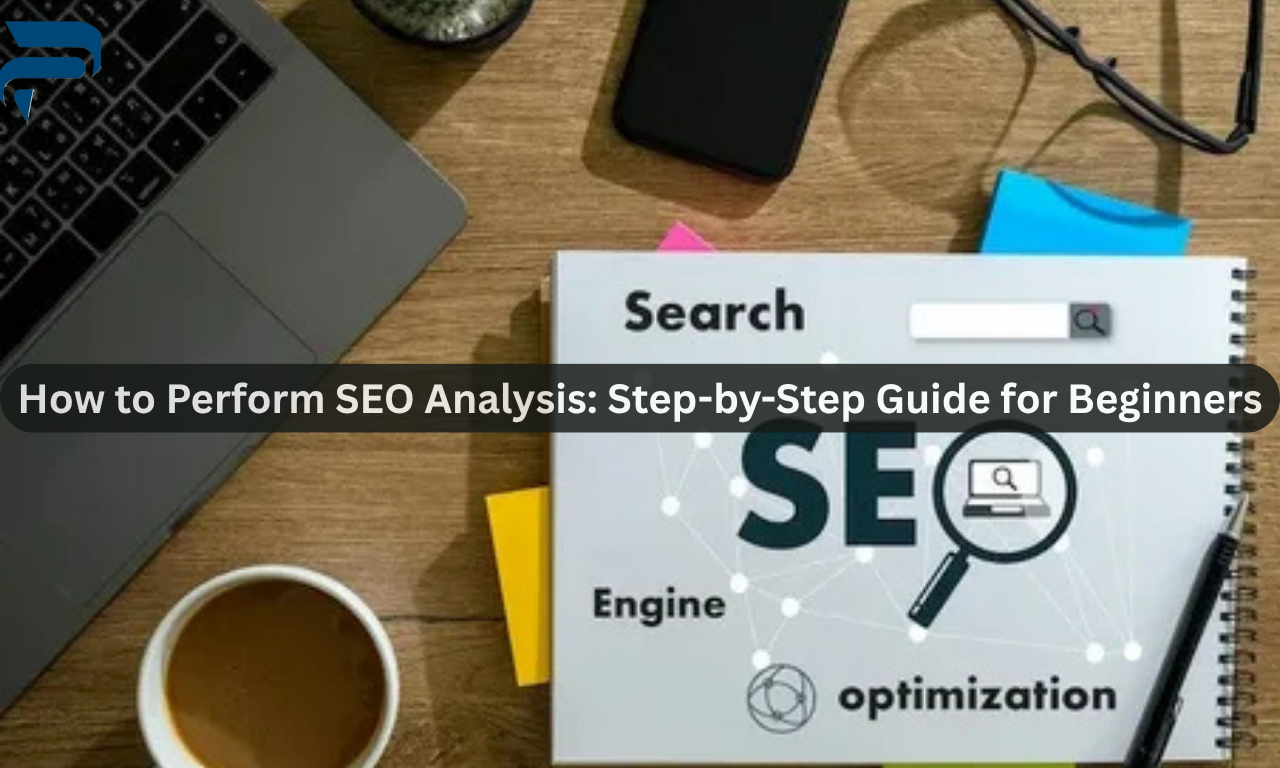Want to boost your website’s visibility but don’t know where to begin? Learning how to perform an effective SEO is your first step toward online success. Whether you’re a beginner or a small business owner and helps you uncover what’s working — and what’s not.
By conducting an Analysis, you can make data-driven decisions to improve visibility, attract quality traffic, and increase conversions. This step-by-step guide will walk you through the entire SEO Analysis process — from evaluating technical factors to reviewing on-page elements and competitor strategies.
What Is SEO Analysis?
SEO analysis is the process of evaluating a website’s performance to determine how it involves reviewing technical elements, on-page content, backlinks, and overall usability, ensuring your site ranks higher on search engines, delivers a smooth, engaging experience to visitors.
Whether you manage a small business or a large online brand, SEO Analysis gives you the insights needed to make smarter, more informed marketing decisions. It’s the foundation of every successful SEO campaign — helping you enhance user experience and improve your site’s performance in search results.
Types of SEO Analysis
SEO Analysis can be divided into several key types, from technical errors to keyword placement; every detail matters when performing SEO. Let’s explore the types of SEO Analysis and how they contribute to better rankings.
- Technical SEO Analysis
Technical SEO analysis is all about improving the behind-the-scenes structure of your website, so that search engines can crawl and index it. It focuses on your website speed, mobile optimization, site architecture, and error-free coding — a technically optimized site provides a faster, smoother experience for visitors, leading to higher engagement and conversions.
- On-Page SEO Analysis
On-Page SEO Analysis focuses on improving every visible element that users and search engines see — from meta titles and descriptions to keywords, headers, and internal links. It also checks URL structure, image optimization, and readability to enhance engagement. make it easier for search engines to understand your content and boost rankings, and better visibility across all your web pages.
- Off-Page SEO Analysis
Off-Page SEO Analysis focuses on how other websites and platforms view your site, such as backlinks, social signals, and brand mentions – understand how external sources impact your ranking potential. By strengthening your off-page profile, you enhance credibility and search engine trust, ensuring your link-building strategy stays effective and compliant with Google’s best practices.
- Competitor SEO Analysis
Competitor SEO Analysis is a crucial step in understanding your market landscape – it involves researching your competitors’ websites to uncover their top-ranking keywords, backlink sources, and content strategies. By studying their strengths and weaknesses, you can refine your own SEO strategy for higher rankings and better traffic – data-driven decisions that put your business ahead in search results.
Step-by-Step Guide to Performing SEO Analysis
A structured SEO Analysis helps you uncover strengths, fix weaknesses, and improve your website’s performance. A step-by-step SEO Analysis ensures your strategy is data-driven, enhances visibility, and achieves higher rankings in search results.
- Analyze Technical SEO
Analyze Technical SEO to identify and fix backend issues affecting your rankings – checks site speed, mobile responsiveness, indexing, and crawl errors. Optimizing technical aspects like XML sitemaps, HTTPS, and structured data can create a strong foundation for higher visibility and better user experience in search results.
- On-Page Evaluation
On-Page Evaluation involves reviewing your website’s titles, headings, URLs, and meta descriptions, ensuring each page targets the right keywords naturally while maintaining readability. By fine-tuning on-page elements, you improve both user engagement and search engine rankings, helping your content stand out and attract the right audience.
- Content Audit
A Content Audit analyzes your website’s pages to measure quality, relevance, and keyword optimization – identifies duplicate, outdated, or underperforming content that may hurt rankings, removes weak pages, and aligns your topics with search intent. Ensuring your site is valuable and competitive in search results — boosting visibility and user trust.
- Backlink Check
A Backlink Check reviews all incoming links to your website, relevance, and quality – helps identify toxic or spammy links that could harm your rankings, and earns valuable backlinks from reputable sites. Regular backlink audits improve your site’s credibility, domain authority, and long-term success in search results.
- Analyze Competitor Performance
Analyze Competitor Performance to discover which keywords, backlinks, and content strategies drive their success and identify where your competitors excel and where you can outperform them. By studying top pages, traffic sources, and ranking patterns, you gain valuable insights to stay competitive and achieve sustainable growth in search rankings.
- Performance Tracking
Performance Tracking focuses on monitoring key SEO metrics like rankings, traffic, conversions, user behavior, and what’s working and where adjustments are needed. Using analytics tools, you can measure improvement, identify trends, and make data-backed decisions, keeping your website visible, competitive, and growing in search engine results.
Best Tools for SEO Analysis
SEO tools streamline website audits, keyword research, and backlink checks. They provide accurate data to enhance your SEO and improve online visibility efficiently. Let’s explore the best platforms to simplify your SEO Analysis:
- Google Analytics/Google Search Console – offer insights into traffic, clicks, and performance issues, making them vital for accurate and actionable SEO Analysis.
- SEMrush and Ahrefs – provide detailed keyword research, backlink audits, and competitor data — essential for performing advanced and result-driven SEO Analysis.
- Screaming Frog SEO Spider – scans your site for issues like broken links and duplicate pages, making technical SEO faster and more effective.
- Moz and Ubersuggest – provide keyword suggestions, backlink data, and site audits — essential features for running quick, accurate, and efficient SEO Analysis.
Conclusion
SEO Analysis boosts your website’s visibility, performance, and conversions. Start optimizing today with expert help from PS TECQ — your trusted digital partner. Contact us now to enhance your SEO strategy and grow online!


